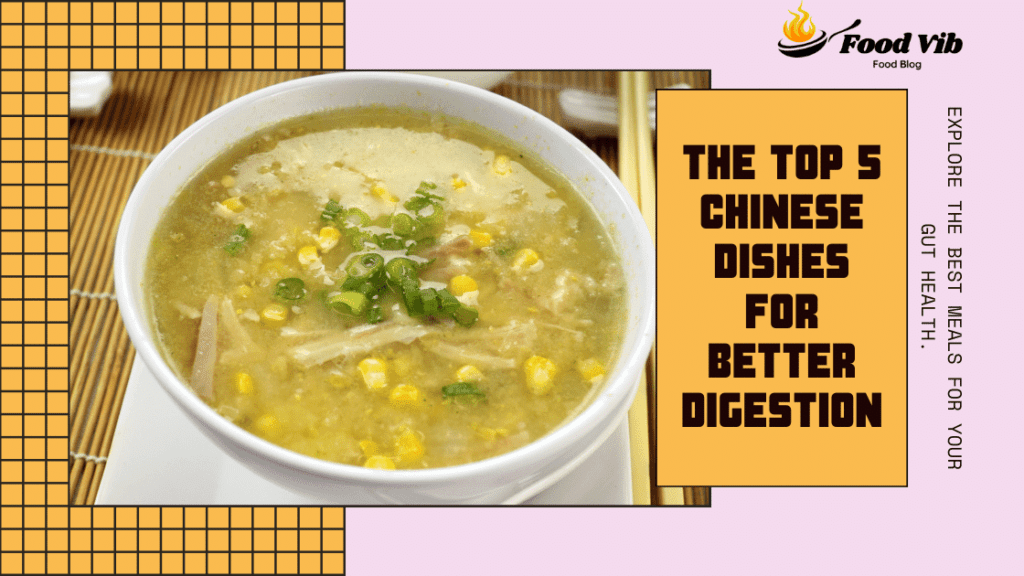The Impact of Chinese Food on Your Bowel Movements Learn Now

Chinese cuisine has long been a mainstay in many diets, but have you ever given it any thought as to how it can affect your bowel movements? The body produces more digestive enzymes when exposed to the strong spices and seasonings utilized in Chinese food. This may result in a more frequent and effective digestion process, especially when paired with the high fiber content present in many foods. However, since Chinese cuisine has a special blend of components, some people could feel uncomfortable or have changes in their bowel motions. To keep your digestion in good shape, it’s important to monitor your body’s responses and modify your diet as necessary.

The Impact of Chinese Food on Your Bowel Movements
Chinese food has taken the culinary world by storm with its wide range of tastes and fragrant dishes. Although the flavor experience is delightful, it’s important to investigate how Chinese cuisine affects bowel movements, a vital component of our overall health. We dive into the nuances of how Chinese cuisine affects intestinal health in this thorough investigation.
The Tapestry of Chinese Flavors.
A Symphony of Sweet, Sour, Bitter, and Spicy.
Chinese food is a tapestry of tastes, sweet, sour, bitter, and spicy, all of which work together to create exquisite dishes. The complex combination stimulates the digestive system, which influences digestion even while the tastes dance on the tongue.
Ingredients and Their Digestive Dynamics.
a.Ginger and Garlic: Digestive Stimulants.
Ginger and garlic, which are often used in Chinese cuisine, do not only taste enhancers but also aid with digestion. By encouraging the release of digestive enzymes, these substances may facilitate digestion and even ease bowel motions.
b.Soy Sauce and Sodium Concerns.
Although soy sauce gives Chinese food a rich flavor, its high salt level might cause constipation. Overconsumption of salt is known to cause water retention, which may have an impact on the regularity and consistency of bowel movements.
The Role of Chinese Tea.
Green Tea’s Digestive Elixir
Chinese tea is a mainstay of Chinese cuisine, especially green tea. Its advantages for digestion are remarkable since it includes antioxidants and catechism, which may support intestinal health. Bowel regularity might be favorably impacted by frequent ingestion.
Culinary Techniques and Bowel Movements
Stir-frying and Digestive Efficiency
One common Chinese cooking method is stir-frying, which calls for high heat and rapid cooking. This cooking technique may improve the foods’ digestibility and help facilitate more easily passed gastric transit as compared to heavier or oilier cooking procedures.
Traditional Chinese Medicine Perspectives
Balancing Qi for Digestive Harmony
Health in traditional Chinese medicine is based on the idea of Qi, or life energy. Chinese food often includes elements thought to promote intestinal harmony by balancing Qi. Regular and pleasant bowel motions are contingent upon a well-balanced digestive system.
Spices and Their Digestive Impact
Chili Peppers: Spice and Digestive Stimulant
Chili peppers are a common addition to Chinese cuisine, offering both spiciness and a possible digestive benefit. The heat-producing substance, capsaicin, may stimulate the digestive system and promote regular bowel movements.
Fiber-Rich Offerings
Vegetables and Whole Grains: Fiber Allies
Chinese food emphasizes entire grains and vegetables, which helps promote a diet high in fiber. Regular bowel movements and better digestion are associated with adequate fiber consumption, making these factors essential for digestive health.
The Yin and Yang of Chinese Cuisine.
Balancing Contrasts for Digestive Equilibrium.
The idea of Yin and Yang in Chinese philosophy refers to conflicting energies that are in equilibrium. Similarly, Chinese food often strikes a balance between opposing tastes and components, fostering digestive homeostasis that may have a favorable effect on bowel movements.
Must Read: The Devastating Impact of Portuguese Food
How Does Chinese Food Affect Your Bowel Movements?
Chinese food, which is renowned for its varied and tasty meals, may significantly affect your gastrointestinal tract and bowel motions. Let’s examine the ways that consuming Chinese cuisine might affect the frequency and pattern of your bowel motions.
1. Rich Array of Flavors: A Digestive Prelude.
Chinese cuisine often combines a wide range of tastes, including umami, bitter, sour, sweet, and salty. This taste profile’s variety may encourage the production of digestive fluids, which can prime your digestive system to break down meals quickly.
2. Ginger and Garlic: Digestive Allies.
Ginger and garlic are common ingredients in Chinese cookery and serve as both digestive aides and fragrant accents. They could stimulate the digestive system, which might facilitate regular bowel motions and make digestion easier.
3. Soy Sauce and Sodium Considerations.
Though many Chinese meals taste better with soy sauce, it’s important to be aware of its high salt level. Overconsumption of salt may cause water retention, which may have an impact on the regularity and consistency of bowel movements.
4. Chinese Tea’s Digestive Nudge.
Tea is often served with Chinese meals, and green tea is a favorite. Antioxidants and catechisms found in green tea may support a wholesome intestinal environment and may have an impact on bowel regularity.
5. Culinary Techniques: Stir-Frying and Digestive Efficiency.
Stir-frying is a popular Chinese cooking method that calls for rapid cooking over high heat. This process preserves the nutrients in the components while also potentially improving their digestion and facilitating more easily passed gas.
6. Spices and Heat: Chili Peppers and Digestive Stimulation.
Because capsaicin is present in chili peppers, adding heat to Chinese food is possible. This substance could help maintain regular bowel movements by stimulating the digestive system.
7. Fiber-Rich Components: Vegetables and Whole Grains.
Chinese food emphasizes entire grains and vegetables, which support a diet high in fiber. Fiber is a healthy addition to Chinese food since it helps with digestion and encourages regular bowel motions.
8. Traditional Chinese Medicine Perspectives on Digestion.
According to traditional Chinese medicine, health depends on the Qi (vital energy) being in balance. Chinese cooking methods often include items that are thought to balance Qi, promoting harmony in the digestive system and encouraging regular bowel movements.
9. Contrasting Elements: The Yin and Yang of Digestive Balance.
The food reflects the Chinese concept of Yin and Yang, which stand for complementary and opposing powers. Maintaining the homeostasis of the digestive system by harmonizing substances and tastes may also have an impact on the frequency of bowel movements.
10. Individual Variations: Listening to Your Body.
It’s crucial to understand that everyone reacts differently to Chinese cuisine. The way Chinese food affects your digestive system and bowel motions depends on some factors, including your general diet, tolerance to specific components, and personal health.
The Top 5 Chinese Dishes That Are Known to Impact Your Digestion.
Although Chinese food is well recognized for its mouthwatering tastes, several of its dishes have been shown to have a significant effect on digestion. The following are the top five Chinese foods to avoid when thinking about how they could affect your digestive system.

1. Sweet and Sour Pork: A Flavorful Culprit.
Although the sweet and tangy tastes of this meal make it a classic, the fried pork, and the sugary sauce may make digestion difficult. Overindulgence may cause pain and sometimes even intestinal problems.
2. Kung Pao Chicken: Spicy Delight with Digestive Consequences.
Loved for its fiery bite, Kung Pao Chicken may cause stomach problems for many people. The combination of the thick sauce and the heat from the peppers may be rather painful for the stomach. To enjoy this meal without disturbing your digestive system, moderation is essential.
3. Deep-Fried Spring Rolls: Crispy, but Not Always Digestible.
Although deep-fried spring rolls have a crunchy outside, the frying process adds a heaviness that might affect digestion. If ingested in excess, the high-fat content may cause pain since it slows down the digestion process.
4. Mapo Tofu: A Flavorful Spicy Tofu Dish.
A tasty and spicy tofu dish called mapo tofu may be taxing on the stomach. Some stomachs may find the mix of the thick sauce and spicy spices too much to handle. Consuming it in moderation may help prevent any possible gastrointestinal distress.
5. Beef and Broccoli: Balance Required.
Although beef and broccoli is a well-liked and well-balanced meal, the richness of the meat and the thick soy-based sauce may cause digestive issues. Maintaining an eye on portion sizes might assist in finding a balance between enjoying the tastes and promoting easy digestion.
Conclusion.
Chinese cuisine offers a plethora of flavors, and while these dishes are beloved for their taste, it’s important to be mindful of their potential impact on digestion. Moderation, listening to your body’s cues, and balancing these dishes with lighter options can contribute to an enjoyable culinary experience without compromising digestive comfort.
Must Read: The Best Ways to Keep Chinese Food Fresh in the Fridge
FAQ (Frequently Asked Question)
What foods help you pass a bowel movement?
Several Chinese dishes may facilitate regular bowel motions:
Hot and Sour Soup: Contains tofu and mushrooms, which help with digestion.
Szechuan Peppercorns: Well-known for aiding with digestion, these peppercorns may encourage bowel motions.
Dishes with Ginger Flavor: Ginger is well-recognized for encouraging bowel regularity and easing stomach pain.
Can Chinese food upset your stomach?
Although most people can accept Chinese cuisine, some people may find particular ingredients or cooking methods to be uncomfortable. A few things to think about are:
Spicy foods: People with delicate stomachs may experience discomfort from excessive spice, as in certain Szechuan foods.
Chopped Foods: Deep-fried or oily foods may be heavy on the stomach and uncomfortable for certain people.
What foods cause more bowel movements?
Because of their unique qualities, several Chinese meals may encourage more frequent bowel movements:
Leafy Greens: Chinese cuisine that contains a lot of leafy greens, such as bok choy, may somewhat induce constipation.
Seafood: Omega-3 fatty acids, which are abundant in shellfish and fish, may help maintain regular bowel movements.
Delicacies based on Prunes: Chinese sweets using prunes or dried fruits might be somewhat laxative.
How does the inclusion of fiber in Chinese cuisine impact bowel movements?
The high fiber content found in whole grains, legumes, and vegetables in many Chinese recipes helps to maintain regular bowel movements by facilitating healthy digestion and warding off constipation.
Are there specific Chinese herbs known to positively influence bowel movements?
n traditional Chinese medicine, medicines like Senna and Chinese rhubarb are sometimes used to treat constipation and encourage bowel movements.
Can the cooking method affect how Chinese food impacts digestion?
Deep-frying is often heavier on the stomach than stir-frying or steaming. The latter may result in pain and a heavier sensation.
How can someone with a sensitive stomach enjoy Chinese cuisine without digestive issues?
People who have sensitive stomachs may still enjoy Chinese cuisine without experiencing digestive issues by choosing softer foods, staying away from too much spice or oil, and adding dishes that have ginger flavor.
Are there any specific Chinese teas that aid in digestion and bowel movements?
It is said that certain teas, such as oolong and pu-erh, are good for the digestive system. They may be used to aid with digestion and ease pain after meals.
How can one strike a balance between enjoying flavorful Chinese cuisine and maintaining digestive health?
People may enjoy Chinese food without jeopardizing their digestive health by striking a balance between their consumption of hearty, delicious foods and lighter alternatives, drinking enough of water, and being aware of their own digestive sensitivities.






3 Comments